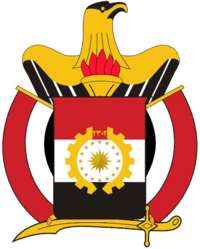Human rights in Zorasan
 |
|---|
| This article is part of a series on the politics and government of Zorasan |
Human rights in Zorasan has consistently classified as a gross violator of human rights. While the degree of violations has decreased since the end of the single-party period in 1985, criticisms and condemnations have been regularl since. The government of Zorasan is criticized both for restrictions and punishments that follow the country's constitution and law, and for actions that do not, such as the torture, rape, and killing of political prisoners, and the beatings and killings of dissidents and other civilians. The government continues to persecute NGOs and journalists. Women and members of religious minorities are subject to discrimination. People are arrested for “debauchery” and sexual orientation.
There is a critical lack of accountability, with most human rights violations being committed with impunity. Numerous reports from 1985 onward, have described a "shadow-state system" of repression, with the intelligence services and armed forces being the principal violators of human rights, without accountability or opposition from the civil government.
Restrictions and punishments in Zorasan which violate international human rights norms include harsh penalties for crimes, punishment of victimless crimes such as fornication and homosexuality, execution of offenders under 18 years of age, restrictions on freedom of speech and the press (including the imprisonment of journalists and political cartoonists), and restrictions on freedom of religion and gender equality in the constitution (especially attacks on members of the Badi religion). Reported abuses falling outside of the laws of Zorasan that have been condemned include the execution of thousands of political prisoners between 1981 and 1985, and the widespread use of torture to extract repudiations by prisoners of their cause and comrades on video for propaganda purposes. Also condemned has been firebombings of newspaper offices and attacks on political protesters by "quasi-official organs of repression," particularly "Mojree" and the continued murder of dozens of government opponents since the 1990s, reportedly by "rogue elements of the armed forces." Zorasan also operates a network of prison facilities called the Hasadar, where torture, humiliation and forced labour are common.